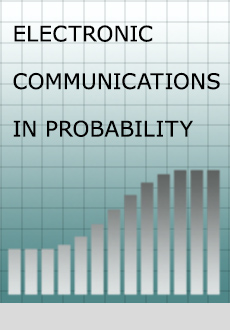Abstract
In this paper we discuss the following problem: given a random variable
Citation
Solesne Bourguin. Ciprian Tudor. "Cramér theorem for Gamma random variables." Electron. Commun. Probab. 16 365 - 378, 2011. https://doi.org/10.1214/ECP.v16-1639
Information





